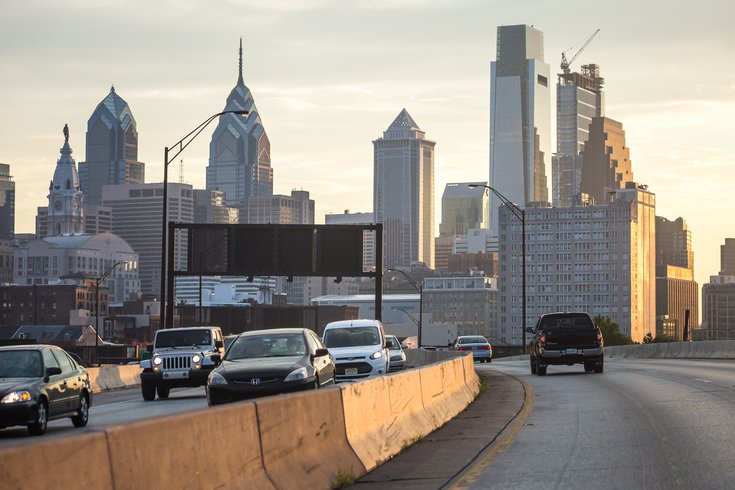
May 04, 2023
 Thom Carroll/For PhillyVoice
Thom Carroll/For PhillyVoice
The Pennsylvania Senate approved a bill that would prevent Philadelphia from imposing its city wage take on non-residents who work from home. The bill heads to the House of Representatives, where it's expected to face opposition from Democrats.
In 1939, Philadelphia became the first city in the nation to impose a wage tax on residents and non-residents working for city businesses. The measure was passed in an effort to combat extreme economic turmoil and improve a budget deficit left over from the Great Depression in 1939.
Over the last 84 years, Philadelphia has remained the only city in Pennsylvania to levy city wage taxes on non-residents without distributing a portion of the earnings back to the commuters' hometowns. But that might be about to change.
A recent effort in the state legislature aims to provide neighboring towns with additional tax revenue if their residents are employed at Philly businesses. The Commuter Tax Fairness Act, a bill put forth by state Sen. Frank Farry, passed out of the Pennsylvania Senate on Wednesday with a 28-21 vote. The bill would narrow Philly's wage tax for non-residents, keeping it at its current rate but allowing about 1% of the tax to be set aside for the workers' home municipalities if they collect an earned income tax.
Philly, in turn, would lose its authority to levy taxes on non-residents who work from home. For those working on a hybrid schedule who only spend some portion of the week working within city limits, the wage tax earning would be proportionate to the amount of work physically performed in the city.
"Because residents who live in surrounding municipalities but work in Philadelphia pay all of their local income tax to the city rather than a portion to their home municipality, the tax burden is greater for non-Philadelphia workers of those municipalities," Farry said in a press release. "My bill would keep a fair share of tax dollars local. Your local tax dollars should be used to help your community."
The Philadelphia wage tax is 3.79% for residents and 3.44% for non-residents, including those who work remotely for companies based in Philadelphia. Most forms of income are subject to the tax, with exceptions for juror payments and death benefits. Philadelphia has one of the highest wage taxes in the country, and the wage tax accounts for about 40% of all operating revenues from the city, MarketWatch reported.
Last summer, city officials cut the wage tax slightly from 3.84% for residents. For non-residents, the wage tax dipped just 0.008%, providing minuscule savings for suburbanites. While wage tax revenue was impacted by COVID-19 lockdowns, it quickly recouped its losses, with an estimated $1.6 billion of the city's $3.8 billion in tax revenue for this fiscal year being sourced from the wage tax, Billy Penn reported.
A spokesperson for the city's Department of Revenue told PhillyVoice that most non-residents who work physically outside of Philadelphia are eligible for a full refund of their wage tax.
Previous efforts to scale back the wage tax, which critics consider an emergency measure that has remained for nearly nine decades, have proven largely unsuccessful.
In a co-sponsorship memo, Farry wrote that suburban towns are losing out on millions of dollars in tax revenue to support basic services like police, fire, EMS and schools. In Bucks County, which Farry represents, communities lose an estimated $10 million per year due to the current law.
Northampton Township manager Robert Pellegrino pointed to a national volunteer firefighter shortage impacting the suburbs, which has led to township officials transitioning to full-time paid firefighter service. This requires significant financial investments to implement, he said.
Farry argued during a Senate Majority Policy Committee hearing earlier this year that his bill would put Philly's wage tax laws on par with the rest of the state, enabling suburban communities to earn additional tax revenue from their residents, even if they work for a Philadelphia business.
"While every other municipality in the Commonwealth must reimburse earned income tax revenues collected from non-residents to the home municipalities of those non-residents, Philadelphia is alone in its ability to keep for itself, both the earned income tax of its residents and all of the non-residents who work in the city, without having to remit any portion or percentage of those non-resident revenues back to the home municipality of those non-residents," said Township of Bensalem Mayor Joseph DiGirolamo.
All state Senate Republicans voted to support the bill, which was primarily approved along party lines. Sen. Steven Santarsiero, of Bucks County, was the sole Democrat to vote in support of the bill. During a hearing before the vote on Wednesday, Democrats accused Republicans of fast-tracking the legislation, which was introduced on Friday, April 28.
The bill is expected to face further opposition in the House of Representatives, where Democrats have a one-vote majority. Just one bill introduced during this legislative session has managed to pass both chambers and be signed into law.
Gov. Josh Shapiro did not immediately respond to a request for comment on whether or not he'd support the bill. The governor supported cutting business income taxes as a candidate but has not publicly revealed his position on Philly's wage tax.
The Commuter Tax Fairness Act heads to the state House of Representatives for further hearings and a vote, though none have been scheduled yet.